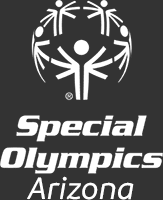What Causes Prader-Willi Syndrome?
What Causes Prader-Willi Syndrome?
Prader-Willi syndrome (PWS) is a very rare and complex genetic disorder that causes a number of physical, intellectual disability, and behavioral issues. PWS greatly affects a child’s metabolism and causes changes in their body and behavior. It is the leading cause of life-threatening childhood obesity due to the constant hunger that children with Prader-Willi often develop as a result of the changes to their metabolism. Children with PWS will usually develop an insatiable hunger around the age of two, one of the main characteristics of the syndrome. The Special Olympics Arizona team is breaking down this rare syndrome: what causes it, risk factors, and if it is preventable.
What Causes Prader-Willi Syndrome?
Prader-Willi syndrome is a genetic disorder that is caused by genes on chromosome 15 losing function. At conception, the process of genomic imprinting will happen, where you inherit one copy of chromosome 15 from each parent. The paternal chromosome turns on and the maternal chromosome will be turned off, but both of these chromosome 15s are necessary for the body to develop and function regularly. There are a number of ways in which chromosome 15 can lose function:
Chromosomal Deletion
The majority of Prader-Willi syndrome cases result from chromosomal deletions—nearly 70%. This occurs when part of the paternal chromosome 15 is missing in each cell in the body. The paternal chromosome 15 is the only one that will be turned on to provide genetic instruction to the body, and when part or all of the chromosome is missing, the body will develop and function differently. In cases of chromosomal deletion, the maternal chromosome 15 is still present but will not function as the paternal chromosome 15 would since it is turned off.
Maternal Uniparental Disomy
A smaller but still significant number of cases of Prader-Willi syndrome occur when a child inherits two chromosome 15s from the maternal genes instead of inheriting one paternal and one maternal. About 25% of cases of Prader-Willi syndrome result from this maternal uniparental disomy. In these cases, since both of the chromosome 15s present are inherited from the maternal parent, they will both be turned off.
Translocation
A very small number, less than 1%, of Prader-Willi cases occur when a chromosome relocates itself to another chromosome, a process called translocation. While chromosome 15 may be producing the correct genes, they will not work properly since the chromosome is not located in the correct spot in the body.
Is Prader-Willi Syndrome Inherited?
The majority of Prader-Willi syndrome cases are not inherited and instead are caused by a random genetic mutation that occurs during the formation of reproductive cells, eggs, or sperm, during early embryonic development. Most people affected by Prader-Willi syndrome have no family history. In rare cases, a genetic change responsible for Prader-Willi syndrome can be inherited. For example, it is possible that a genetic change causing the abnormal turning off of chromosome 15 can be passed from one generation to the next.
Risk Factors
As mentioned, Prader-Willi syndrome is usually caused by a random genetic mutation and is very rarely inherited. As such, there are no behaviors that can be recognized as risk factors for parents having a child develop Prader-Willi. Individuals with Prader-Willi syndrome will commonly struggle with infertility, and there are so few cases of these individuals giving birth to a child that it is unknown whether they would pass the syndrome onto their children.
Can Prader-Willi Syndrome Be Prevented?
Due to the spontaneous genetic mutation that causes Prader-Willi syndrome, it is not possible to prevent it. If you have a child with Prader-Willi and are thinking of having another child, you can work with a genetic counselor to discuss your chances of giving birth to a second child with the syndrome.
Is There a Cure for Prader-Willi Syndrome?
There is no cure for Prader-Willi syndrome. However, large strides have been made as far as intervention methods and condition management. Individuals with Prader-Willi who have early intervention and assistance with weight management throughout their lifetime can have a good quality of life and a reasonably normal life expectancy. Treatments for Prader-Willi generally include things like medication and various therapies.
Medication
Many babies born with Prader-Willi syndrome will suffer from hypogonadism, and medication will be prescribed at an early age to help their sex organs grow to a normal size. One common hormonal medication is human growth hormone, which will help increase height, reduce body fat, improve breathing, improve bone density, and reduce behavioral problems. The earlier a child with Prader-Willi begins hormone therapy, the better the results will be. Many children begin taking HGH as early as two to three months after they are born. As individuals age into adulthood, antidepressants and other medications may help with the emotional and behavioral side effects of Prader-Willi.
Therapies
There are a variety of therapies available for individuals with Prader-Willi to help improve their motor and emotional skills, as well as manage behavioral issues. Physical therapy, occupational therapy, speech therapy, behavioral therapy, and special education are all recommended for children with PWS, depending on the severity of their symptoms. Working with a dietician to carefully control diet and assist with exercise is also recommended for individuals with Pradr-Willi.
Early intervention and the advancement in treatment options for individuals living with Prader-Willi have made the condition much more manageable and provided new hope to parents, even though there is still no cure. Connecting with a community of parents and peers who have also been affected by Prader-Willi will help you and your child learn more about the syndrome and discover options for moving forward, as well as give you the opportunity to connect with people who understand.



